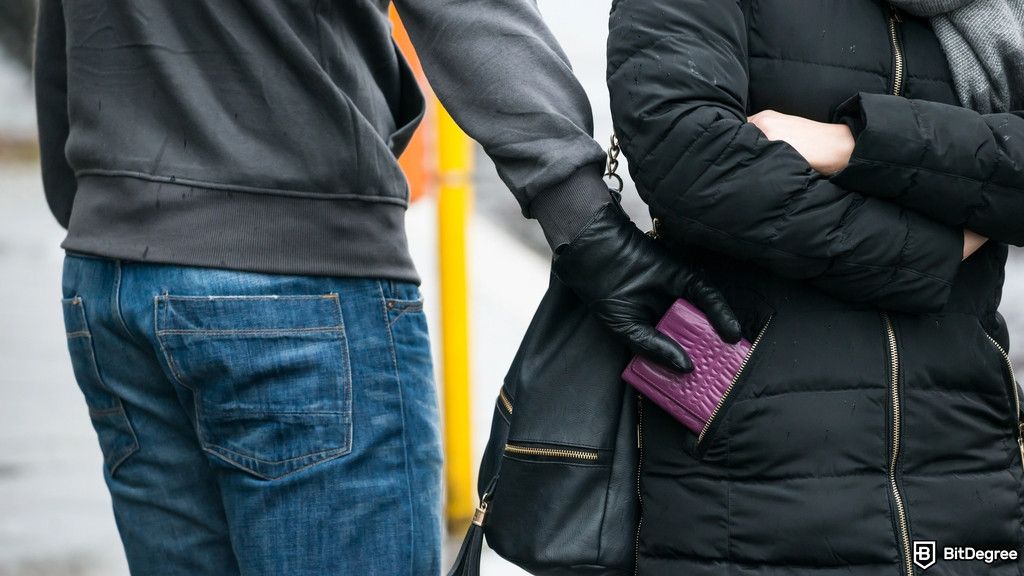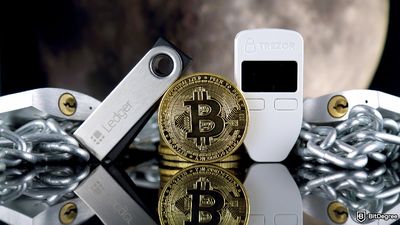Key Takeaways
- Crypto wallet security requires a comprehensive approach, including safeguarding private keys and choosing between custodial and non-custodial wallets;
- Common threats like phishing, malware, and physical theft emphasize the need for strong passwords, two-factor authentication, and secure storage of seed phrases;
- Advanced measures like hardware wallets, multi-signature setups, and Shamir's Secret Sharing provide enhanced security for managing large cryptocurrency holdings.
Stop overpaying - start transferring money with Ogvio. Sign up, invite friends & grab Rewards now! 🎁
For those exploring the crypto space, safeguarding digital assets is always a top priority. With stories of hacks and lost fortunes making headlines, crypto wallet security has become a topic no investor can ignore.
It involves more than just setting a password. It's a comprehensive approach to ensuring that the private keys and assets stored in your wallets are protected against threats both online and offline.
Whether you're using a software wallet for quick transactions or a hardware wallet like Ledger Flex or Trezor Safe 5 for long-term storage, understanding the measures needed to secure your assets is vital. So, let’s explore how you can enhance your crypto wallet security!

Did you know?
Subscribe - We publish new crypto explainer videos every week!
Layer 2 Scaling Solutions Explained With Animations


Table of Contents
- 1. Overview of a Crypto Wallet
- 2. Common Crypto Wallet Security Threats
- 3. Best Practices for Enhancing Crypto Wallet Security
- 3.1. Choose Reputable Wallet Providers
- 3.2. Utilize Hardware Wallets for Long-Term Storage
- 3.3. Implement Strong, Unique Passwords
- 3.4. Enable Two-Factor Authentication
- 3.5. Securely Store and Back Up Seed Phrases
- 4. Advanced Crypto Wallet Security Techniques
- 4.1. Using Multi-Signature Wallets
- 4.2. Enabling Passphrase Encryption for Added Security
- 4.3. Implementing Shamir’s Secret Sharing
- 5. How to Choose a Secure Crypto Wallet?
- 6. Conclusions
Overview of a Crypto Wallet
When discussing crypto wallet security, a question that might pop up in the minds of crypto newcomers is, “What is a crypto wallet?”. So, before diving further into the common threats and wallet security best practices, let’s first understand the fundamentals.
Latest Ledger Flex Coupon Found:So, crypto wallets are essential tools for anyone dealing with digital assets. They serve as the storage, sending, and receiving point for cryptocurrencies, functioning like a digital safe.[1] Additionally, there are two main types of crypto wallets: custodial and non-custodial.
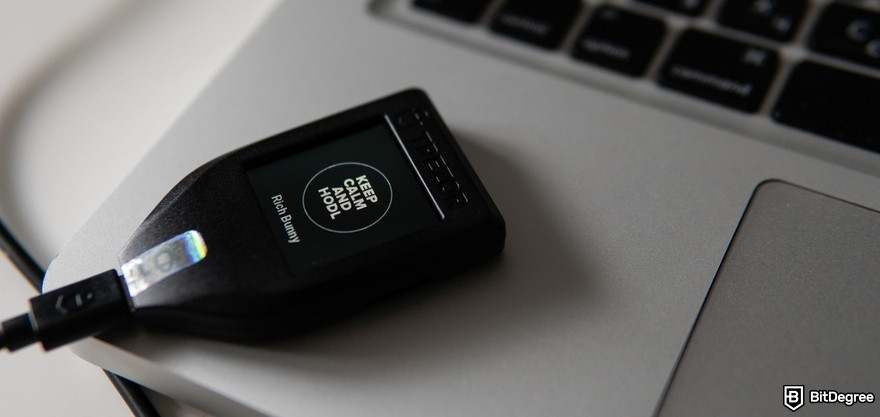
When you use a custodial wallet, a third party, such as a cryptocurrency exchange, holds and manages your private keys on your behalf. This setup can be convenient, but it also means trusting your assets to another entity. Some popular examples of custodial wallets are Binance Wallet and Bybit Wallet.
Non-custodial wallets, on the other hand, give you full control of your private keys and, by extension, your funds. While non-custodial wallets offer more control, they also require a greater level of responsibility from the user. Examples of non-custodial wallets include Trust Wallet and hardware wallets like Ledger Flex and Trezor Safe 5. It's also worth knowing the different types:
- Software wallet. Also referred to as a wallet app or hot wallet, it is an application that exists on a connected device such as a phone or computer.
- Paper wallet. A physical printout of your public and private keys, often in the form of QR codes, allowing you to store cryptocurrency offline. It requires careful handling to prevent loss or theft.
- Hardware wallet. A physical device that securely stores your private keys offline, providing enhanced security against online threats. Popular examples include Ledger Flex and Trezor Safe 5.
- Web wallet. An online wallet accessed through a web browser, where your private keys may be stored on a server. It offers convenience but can be less secure due to potential hacking risks.
- Desktop wallet. A software application installed on your computer, giving you full control over your private keys.
Now, you already have a good starting point for mastering crypto wallet security by understanding what a crypto wallet is and its types. Let’s proceed to the next one.
Common Crypto Wallet Security Threats
The digital nature of cryptocurrencies, unfortunately, makes them attractive targets for hackers and scammers. So, it's essential to be aware of the common threats that could compromise the safety of your digital assets.
Phishing Attacks
Phishing attacks are one of the most common threats to crypto wallet security. The way it works is pretty simple. A hacker impersonates a trusted entity, such as a crypto exchange or wallet provider, to trick you into revealing your private keys or login credentials.
These scams are often disguised as deceptive emails, phone calls, or even fake websites that look nearly identical to legitimate services. If unsuspecting users fall victim to one of the scams, attackers can easily access their wallets and steal.

To avoid such an attack, always verify the authenticity of any links or websites you want to visit. Never click on suspicious links, and double-check website URLs before entering your private information. It's also a good idea to use a bookmark for your wallet provider or exchange's website to avoid being redirected to a fraudulent site.
Malware and Keyloggers
Malware, specifically keyloggers, is another significant threat to crypto wallet security. Malware is malicious software that can infiltrate your computer or mobile device, often without you even knowing it.
Once installed, it can monitor your activities, steal sensitive information, or even alter transactions. Keyloggers, a specific type of malware, record every keystroke you make, allowing attackers to capture your wallet passwords or private keys.
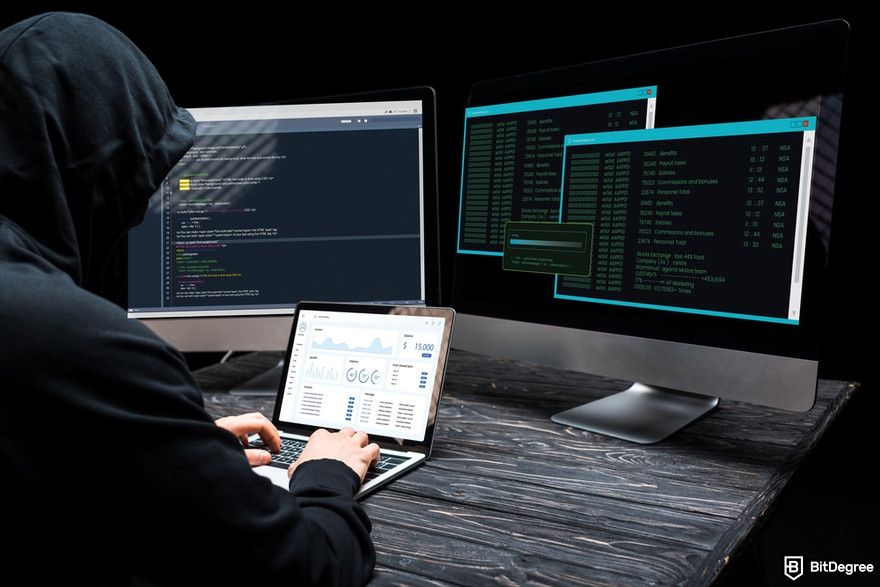
To protect yourself from such malware, always update your devices with the latest security patches and use a reputable antivirus program. Avoid downloading software or opening attachments from untrusted sources, as these are common ways for malware to enter your system.
If you want enhanced security storage for your cryptocurrencies, consider using a hardware wallet. They keep your private keys offline and out of reach of malware.
Physical Theft of Hardware Wallets
While digital threats are a major concern, it's also important to consider the risk of physical theft. Hardware wallets are considered one of the most secure tools to store cryptocurrencies.
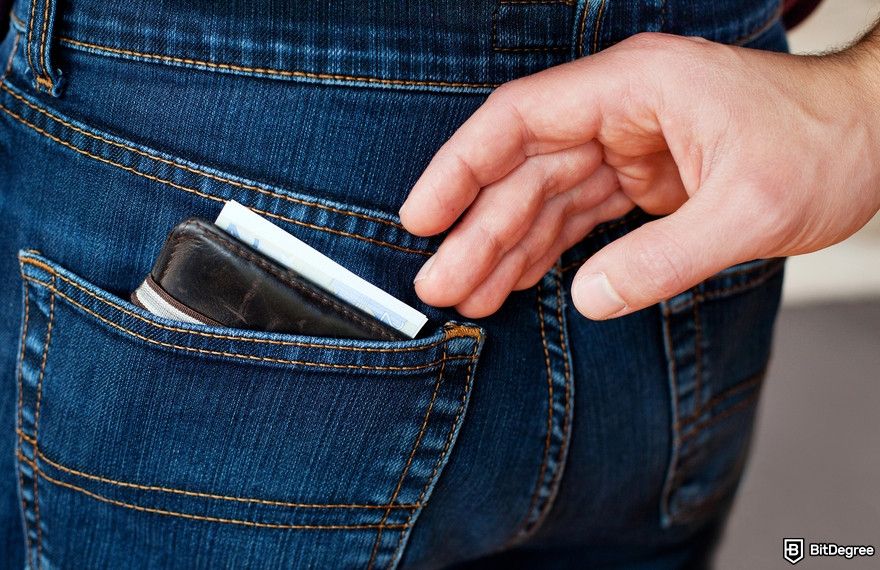
However, if a thief gains physical access to your hardware wallet, they could potentially access your funds, especially if they also manage to obtain your PIN or seed phrase.
So, how to protect a crypto wallet from physical theft? Always store it securely, such as in a locked drawer or safe. Avoid carrying your hardware wallet with you unless absolutely necessary, and consider using additional security measures like a passphrase or multi-signature setup.
Best Practices for Enhancing Crypto Wallet Security
Now that I’ve covered several common threats, it’s time to focus on how to protect the assets. Implementing wallet security best practices ensures your holdings remain safe from digital and physical threats.
Choose Reputable Wallet Providers
Finding a reputable wallet provider is one of the first and most crucial steps in ensuring the security of your assets. A well-established platform offers reliability, strong security protocols, and ongoing support to help protect your cryptocurrency.
Now, people often search, "What is most secure crypto wallet for your needs?". There are many popular providers to choose from. Let's look at some of them:
Ledger
Ledger is one of the most popular hardware wallet providers available, offering a high level of security, including a secure element chip, BOLOS operating system, and passphrase feature. Ledger Flex and Ledger Stax are great options for secure long-term storage solutions.
Trezor
Trezor is another well-known hardware wallet provider renowned for its security and ease of use. Like Ledger, Trezor wallets keep your private keys offline and provide strong protection against malware and other threats. Popular Trezor products include Trezor Safe 5 and Trezor Model T.
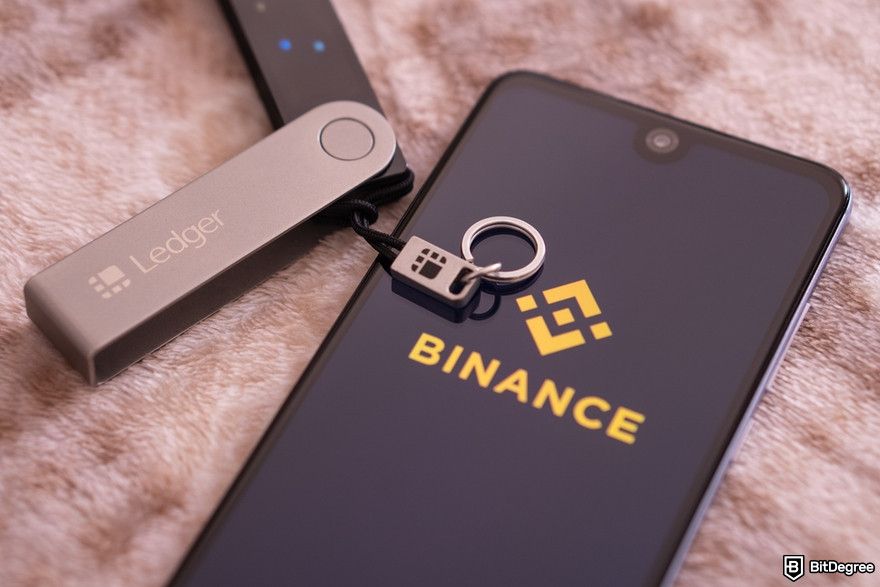
Binance Wallet
Binance offers a custodial wallet solution to easily store your purchased cryptocurrencies in the platform. This type of wallet is convenient, especially for those who trade frequently. That said, Binance also has another wallet option – Binance Web3 wallet. It’s a great choice for those preferring a self-custody solution.
Bybit Wallet
Bybit Wallet is another custodial option, allowing users to easily store and manage their cryptocurrencies within the Bybit platform. It features robust security measures, including multi-signature wallets and cold storage solutions, to protect users' assets.
Overall, knowing how to choose the best secure crypto wallet provider, you’ve already got a layer of security for your cryptocurrencies.
Utilize Hardware Wallets for Long-Term Storage
If you hold high-value digital assets or want to store cryptocurrencies like Bitcoin (BTC) for long-term investments, consider using a hardware wallet. Why is that?
One of the primary benefits of hardware wallets is that they keep your private keys completely offline, which is an advantage over software wallets. Software wallets, while convenient for everyday transactions, remain connected to the internet, which leaves them susceptible to a variety of online threats.
In contrast, a hardware wallet ensures that your high-value digital assets are kept secure in an isolated environment. This is why storing high-value cryptocurrencies on a hardware wallet is highly recommended as part of how to protect crypto wallets effectively.
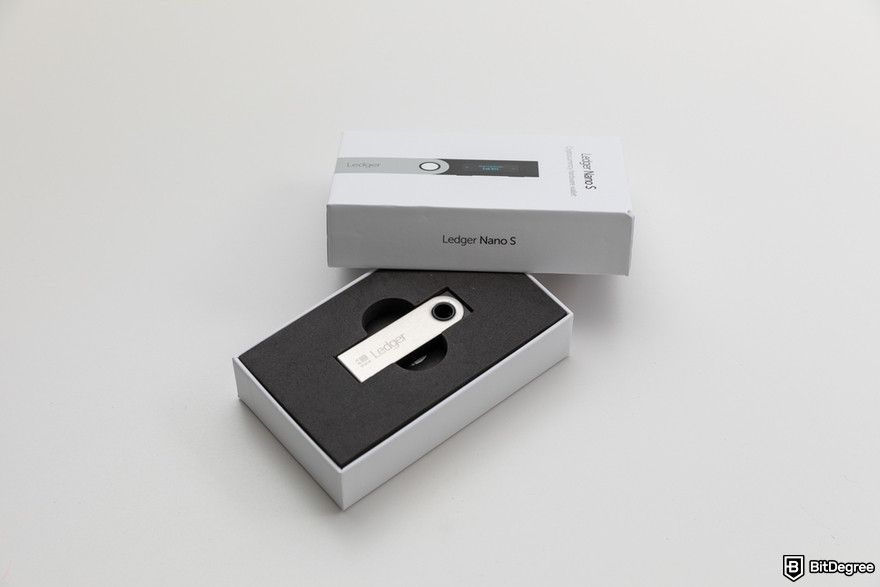
For instance, Ledger Flex is a popular hardware wallet known for its robust security features and ease of use. It supports a wide selection of cryptocurrencies, allowing you to store all of your assets in one place. With Bluetooth functionality, Ledger Flex also offers convenience while maintaining high levels of security.
In short, hardware wallets offer a level of security that other methods can't match, especially for long-term storage. By using this device, you ensure that your private keys remain offline and inaccessible to online threats.
Implement Strong, Unique Passwords
Another important yet basic crypto wallet security measure is implementing a strong and unique password. It may seem like a simple layer of protection, but it plays an essential role in securing your wallet and preventing unauthorized access.
Weak or frequently reused passwords can easily be compromised, making even the most advanced crypto security measures ineffective. This is why ensuring the strength and uniqueness of your passwords is as important as any other aspect of crypto wallet security.
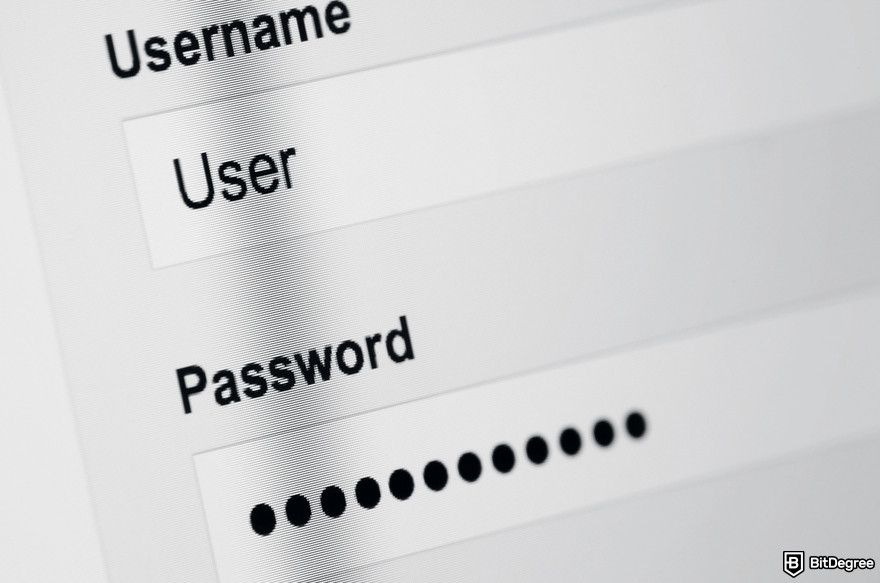
By the way, here are some tips to create strong, unique passwords:
- Use a combination of characters: A strong password should include a mix of upper and lowercase letters, numbers, and special characters. The more complex your password, the harder it is for attackers to crack.
- Avoid common words or phrases: Steer clear of using easily guessable information, such as your name, birth date, or commonly used phrases. Passwords that contain random combinations of characters are significantly more secure.
- Make it long: The length of your password matters. A longer password (at least 12-16 characters) provides protection against brute-force attacks.
- Unique for every account: Never reuse passwords across multiple platforms. If one account gets compromised, using the same password across accounts means all your wallets and services are at risk.
Managing strong and unique passwords for multiple crypto wallets can be challenging, especially as the number of accounts grows. This is where a password manager can be extremely useful.
A password manager securely stores your passwords in an encrypted vault, allowing you to create and manage complex passwords without needing to remember each one. However, as it is still digital, the safest way is to have it written down and placed in a secure location.
Enable Two-Factor Authentication
Besides using unique and strong passwords, it's also crucial to enable two-factor authentication (2FA). By the way, 2FA is an extra layer of security that requires users to provide two forms of identification before accessing their crypto wallets. Typically, it involves a password and a one-time code sent to your mobile device.
Using two-factor authentication in crypto wallet security is vital because it adds a second layer of defense against unauthorized access. Even if a hacker somehow manages to obtain your password, they would still need a second form of identification – such as a time-sensitive code – to access your wallet.
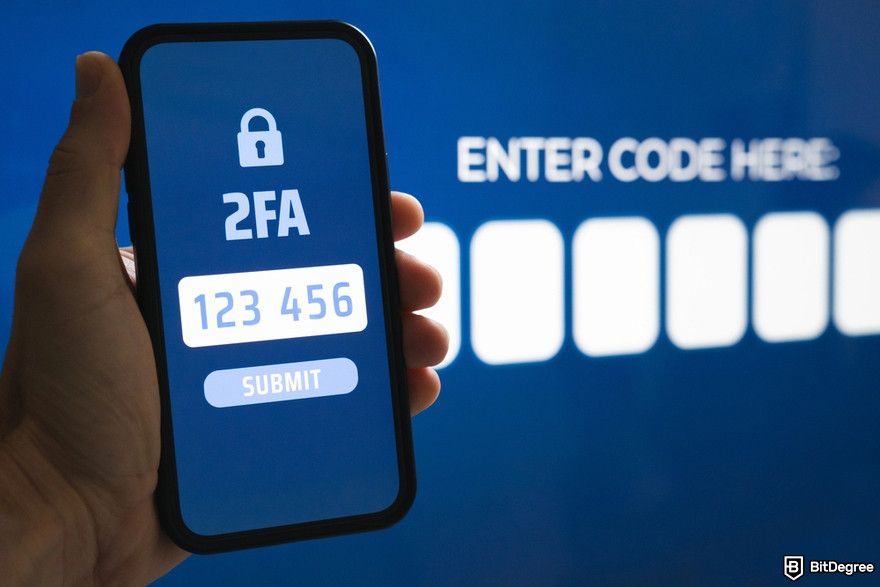
A real-life use case of implementing 2FA is when using a software wallet. For example, Binance Wallet allows users to enable two-factor authentication by linking their wallet to an app like Google Authenticator. Whenever you try to access your wallet or initiate a transaction, the platform will prompt you to enter a one-time code from the authentication app.
Overall, incorporating 2FA into your overall wallet security best practices is a straightforward yet highly effective way to protect your digital assets.

Did you know?
Subscribe - We publish new crypto explainer videos every week!
Crypto Research Fundamentals: How to DYOR (Animated Explainer)


Securely Store and Back Up Seed Phrases
One of the best practices for securing your cryptocurrency is to store and back up your seed phrases. A seed phrase, sometimes called a recovery phrase, is a series of words generated by your wallet[2] that allows you to recover your crypto assets if you lose access to it.
Think of it as the master key to your crypto funds. If someone gains access to your seed phrase, they essentially have full access to your assets.
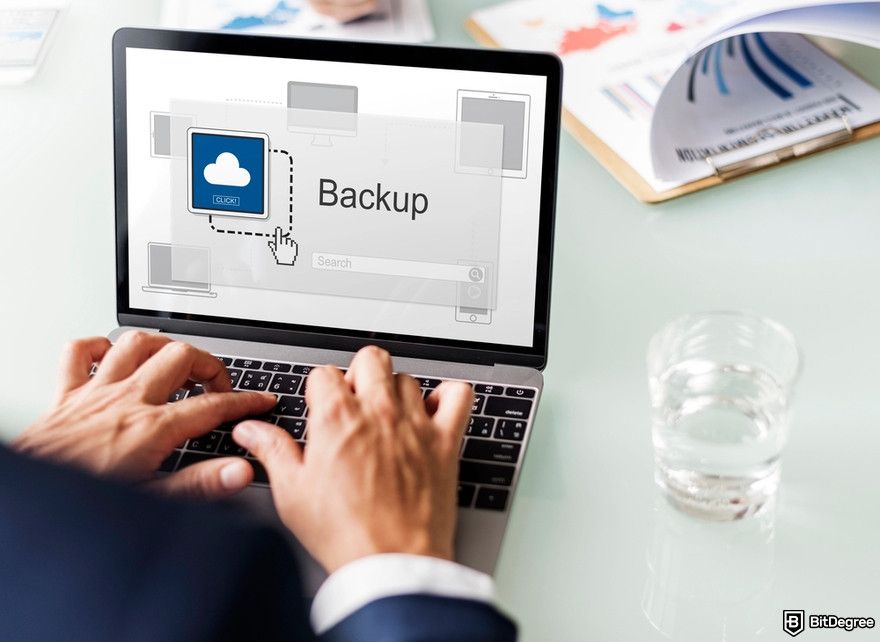
Because of the crucial role seed phrases play in crypto wallet security, it's important to handle them with extreme care. Here are some best tips on how to protect crypto wallet seed phrases:
- Write it down: The safest way to store a seed phrase is to write it down on paper. Avoid storing it digitally on your computer or mobile device. Writing the recovery phrase down minimizes the risk of it being accessed online.
- Store in multiple secure locations: To further protect your seed phrase, store copies in multiple secure locations, such as a safe or a safety deposit box. This ensures that even if one copy is lost or destroyed, you can still recover your wallet.
- Don't share it with anyone: Never share your seed phrase with anyone. Even customer support from your wallet provider will never ask for your seed phrase. Sharing it with other people puts your funds at significant risk.
- Use fireproof and waterproof storage: Consider storing your written seed phrase in a fireproof and waterproof container. This helps protect it from physical threats like fire or flooding, ensuring its longevity and safety.
By securely storing and backing up your seed phrases, it means that you have a reliable way to recover your crypto assets if something goes wrong.
Advanced Crypto Wallet Security Techniques
If common crypto wallet security best practices aren't enough, I have several advanced methods that provide even greater safety for your digital assets. So, let's discuss how to protect a crypto wallet using these strategies.
Using Multi-Signature Wallets
One of the advanced crypto wallet security techniques is using a multi-signature wallet. This wallet, often referred to as a “multi-sig” wallet, requires more than one private key to authorize a transaction. This feature ensures that no single party has complete control over the funds, making it one of the best secure crypto wallet options for those seeking enhanced security.
Using a multi-signature wallet is the first step you should take. It is often called a "multi-sig" wallet and requires more than one private key to authorize a transaction. This feature ensures that no single party has complete control over the funds. As a result, it is one of the best secure crypto wallet options for those seeking enhanced security.
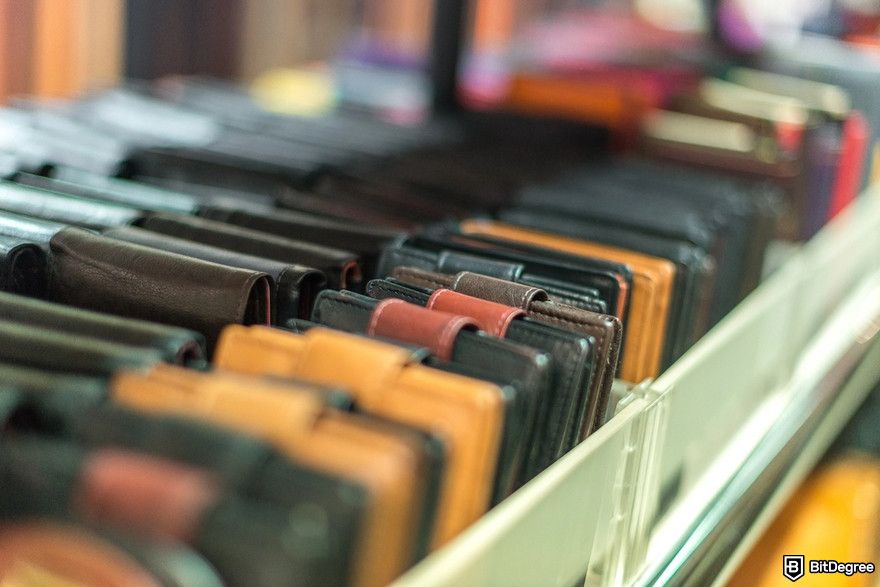
For instance, you could set up a wallet that requires two out of three keys to authorize any outgoing transaction. This greatly reduces the risk of unauthorized access, as an attacker would need to compromise multiple keys simultaneously to gain control of the assets.
Moreover, multi-signature wallets are particularly useful for organizations where multiple stakeholders must approve financial transactions. However, individual users who want extra layers of protection can also benefit from this extra layer of security, as they can distribute the keys among different devices or trusted individuals.
Enabling Passphrase Encryption for Added Security
Enabling passphrase encryption on a crypto wallet is a great advanced security measure that adds another layer of protection to your digital assets.
For anyone wondering, it is an additional custom word or phrase you set up, which is used alongside your seed to access your wallet. Essentially, it provides an extra barrier against unauthorized access.
The beauty of this security feature is that it allows for an added layer of secrecy, turning a standard wallet into a hidden one that can only be accessed with the correct passphrase.
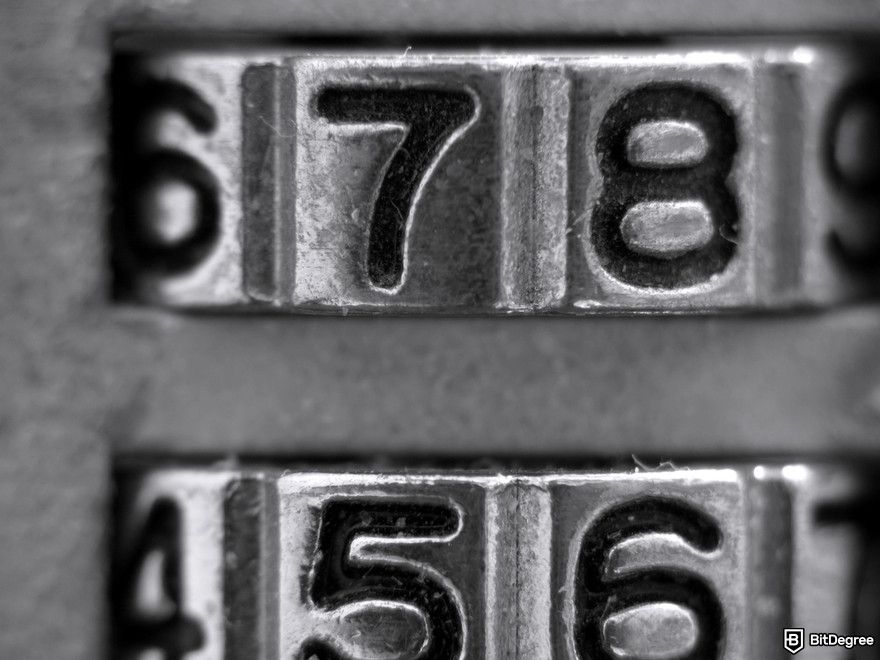
Ledger Flex and Trezor Safe 5 offer this feature to enhance crypto wallet security. The former can be activated through the Ledger Live app. Users can create a custom passphrase, which effectively creates an additional wallet that only you can access using both the seed and the passphrase.
Similarly, Trezor Safe 5 offers passphrase encryption as an added security feature. Users can enable it during the setup process or through the Trezor Suite app. Once activated, the passphrase creates a hidden wallet that only those with it can access.
By adding this extra layer of security, you gain peace of mind knowing that your funds are safeguarded even in the event of a breach of your primary seed phrase.

- User-friendly design
- Robust security
- Long battery life

- Dual auditable Secure Element chips
- Quantum-resistant protection
- Water and dust resistant

- Transaction Check feature
- Direct dApps connection
- Great middle-ground price
Implementing Shamir’s Secret Sharing
Another advanced crypto wallet security measure is implementing Shamir's Secret Sharing (SSS). It's a cryptographic technique to split a secret, such as a seed phrase, into multiple parts or "shares". Each share is incomplete on its own, but when combined with a certain number of other shares, the original secret can be reconstructed.
For example, you could split your seed phrase into five shares and require any three of those shares to recover your wallet. This provides flexibility in safeguarding your assets, as you can store shares in different locations or entrust them to different people. Even if one share is lost, the remaining shares are enough to recover the wallet.
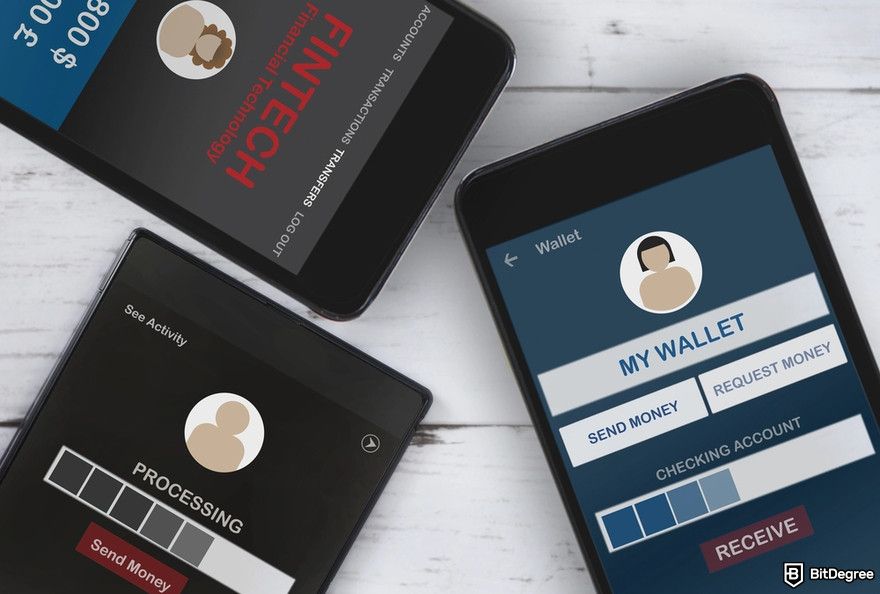
Shamir's Secret Sharing is particularly useful for individuals who want to distribute their seed phrase across multiple trusted parties or locations. This method adds an advanced layer of crypto wallet security, providing peace of mind for those who want to protect their digital assets from physical and digital threats.
Overall, implementing Shamir's Secret Sharing is a powerful way to enhance safety, especially for users who are managing large holdings or have a high need for additional resilience against theft or accidental loss.
How to Choose a Secure Crypto Wallet?
After learning various crypto wallet security best practices, let's discuss several tips on choosing the safest option. To determine what is the most secure crypto wallet for your needs, here are several important factors to consider.
Control Over Private Keys
One of the most important aspects of crypto wallet security is control over your private keys. A secure wallet should allow you to have full control of your private keys, which are the keys to your digital assets.
When you control the private keys, you have complete ownership of your funds, and no third party can access or freeze your assets. Non-custodial wallets, such as Ledger Flex and Trezor Safe 5, provide this level of control, making them a preferable option for those who want maximum security and independence.
Reputation and Reviews
Before selecting a crypto wallet, it's crucial to research the provider's reputation first. Check user reviews, forums, and independent review sites to determine if it has a solid track record of security and customer satisfaction.

A wallet provider with a history of security breaches or poor customer service may not be a reliable choice. Opt for options that the crypto community has extensively reviewed. This is to ensure that you are choosing one of the best secure crypto wallet options available.
Development and Support
Development and ongoing support are crucial aspects of a secure crypto wallet. Providers with active development teams regularly release software updates and security patches to address vulnerabilities and improve the user experience.
Additionally, good customer support is invaluable, especially for beginners who may need assistance navigating the initial setup process or troubleshooting issues. Choosing a provider that prioritizes development and offers responsive support ensures that you have access to help when needed and that your wallet remains secure against emerging threats.
The right combination of features, security, and support of a crypto wallet helps ensure your funds are safe and accessible only to you. Remember, the best option is the one that aligns with your specific needs while providing robust protection.
Conclusions
Crypto wallet security is an essential aspect of managing and safeguarding your digital assets. From understanding the basics to adopting advanced techniques like multi-signature and Shamir's Secret Sharing. Every step contributes to building a robust defense against potential threats.
Additionally, the importance of wallet security can't be ignored, especially with the rise in sophisticated cyber threats targeting crypto users. By choosing a reputable provider, using strong passwords, enabling two-factor authentication, and securing your seed phrases, you can greatly reduce the risk of unauthorized access.
Moreover, hardware wallets like Ledger Flex and Trezor Safe 5 provide excellent options for those looking to enhance their crypto wallet security with added features like passphrase encryption. Take the time to understand your needs and apply the techniques discussed to ensure your cryptocurrency remains safe.
The content published on this website is not aimed to give any kind of financial, investment, trading, or any other form of advice. BitDegree.org does not endorse or suggest you to buy, sell or hold any kind of cryptocurrency. Before making financial investment decisions, do consult your financial advisor.
Scientific References
1. S. Houy, P. Schmid, A. Bartel: 'Security Aspects of Cryptocurrency Wallets—A Systematic Literature Review';
2. S. T. Bukhari, M. U. Janjua, J. Qadir: 'Secure Storage of Crypto Wallet Seed Phrase Using ECC and Splitting Technique'.
